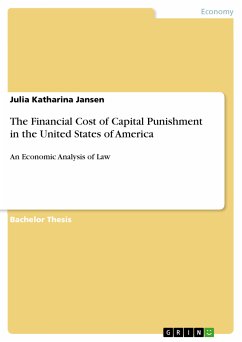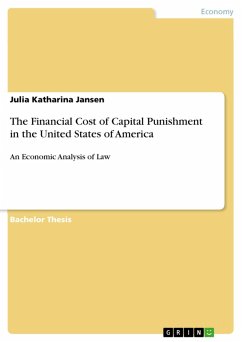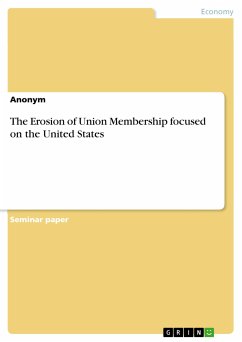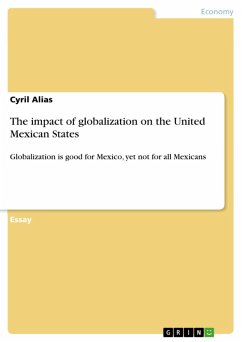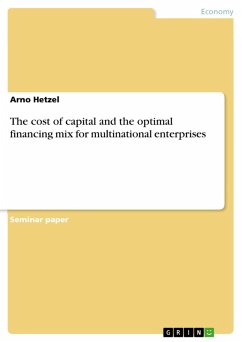Bachelor Thesis from the year 2011 in the subject Business economics - Law, grade: 1,0, Berlin School of Economics and Law, language: English, abstract: Awareness surrounding the financial burden of capital punishment is increasing and slowly beginning to permeate the American Society. However, not enough light has been shed on the sources that are causing the financial devastation. The death-is-different legal doctrine in the United States grants procedural protection that is unique for capital litigation providing individual consideration for each case. The paper investigates the price increase by capitally adjudicating a case compared to a non-capital litigation. Looking at the economic side of the impact of legal statutes should contribute to the discussion about choosing alternative punishments, such as life incarceration without the possibility of parole, and the systems' improvement prospects or the lack thereof. In the aftermath of a severe economic crisis and with ongoing financial solvency crises of interdependent nations, cost cutting considerations become all the more essential. Further, it is “Time to consider whether maintaining the costly death penalty system is being smart on crime” by briefly looking into where the money could be invested instead in order to achieve an equivalent effect. In short, the paper aims at ascertaining the financial cost of capital punishment and how the discoveries can impact jurisprudence. The central questions are the following. How to approach the financial cost of death penalty? What are the cost drivers of the system? Are there calculable benefits? How did and can economic arguments influence the legitimacy of capital punishment? The paper is structured as follows. The introduction is designed to lay out the framework of the United States capital punishment system. The main part provides an overview of the developments in approaching the cost of state-sanctioned killing, then explores the key cost drivers and finally takes the reader through the difficulty of quantifying benefits. The main part concludes with a section offering a deduction of how economic reasoning may impact jurisprudence. At last, the conclusion presents final remarks.
Bitte wählen Sie Ihr Anliegen aus.
Rechnungen
Retourenschein anfordern
Bestellstatus
Storno

